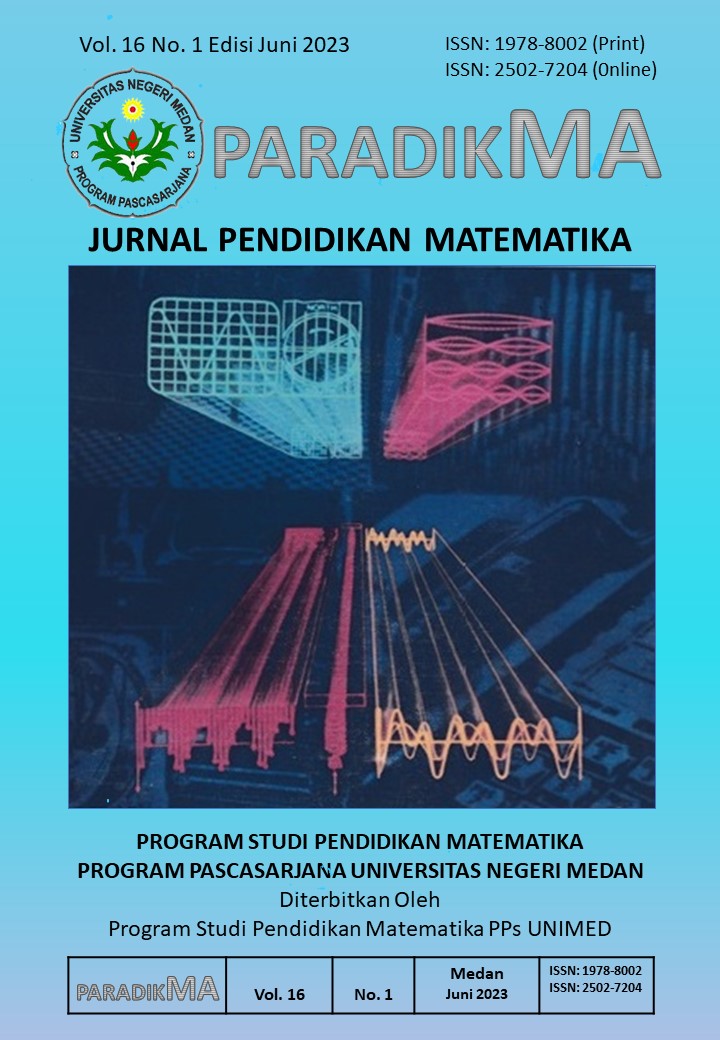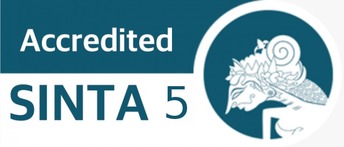Phenomenological Exploration in Mathematics Education
DOI:
https://doi.org/10.24114/paradikma.v16i1.45264Abstract
We don't know what will happen tomorrow. Yesterday is a memory, today is a reality and tomorrow is a hope. Who would have thought that the corona virus would become one of the elements forming a new life cycle not only for Indonesia but for the whole world. During the Covid-19 pandemic, Large-Scale Social Restrictions (PSBB) were implemented, this had an impact on the implementation of face-to-face (online) learning. Educational institutions must also change direction. Work from home. Going online is one way to stay afloat. Learners at all levels, learn online. Some are still not familiar with this method, especially those in regions or villages, so that in its implementation there are obstacles that result in the implementation of the learning process not being optimal. Those who live in cities experience different obstacles again. Learning that should be carried out face-to-face has changed to online. One of the differences that exist is seen from progress, namely those who live in cities and in villages have different difficulties. Not to mention the other variants. This article aims to find out the obstacles experienced by students during the implementation of online learning in Mathematics lessons. The approach used is a phenomenological approach. How does the exploration of phenomenology play a role in the mathematical approach. The hope is that with this approach you can get information regarding the implementation of the online learning process for learning Mathematics during the Covid-19 pandemic. Exploration of Mathematics Education is seen from a phenomenological attitude, which means that it starts with entering phenomena through practice. The exercises provided are designed so that participants are able to illustrate, mention, give directions and are able to associate meanings and differences. Actually someone gets something in learning more than one's intentions, it doesn't even matter whether a teacher teaches well. For this reason, a creative teaching method is needed in learning mathematics so that there is good interaction between students and teachers. Conclusion: The process of learning mathematics online was not optimal during the pandemic due to several factors that affected the smooth implementation of learning.References
Khasanah, S. U., & Syarifah, A. (2021). Persepsi Mahasiswa Pendidikan Bahasa Inggris UIN Sunan Ampel Surabaya Terhadap Pembelajaran Daring Via Zoom Pada Masa Pandemi Covid-19.
Nastiti, R., & Hayati, N. (2020). Pembelajaran Daring pada Pendidikan Tinggi: Tantangan Bagi Mahasiswa dan Dosen di Tengah Pandemi. INOBIS:
Martiarini, N. (2016). Eksplorasi Nilai-Nilai Pendidikan Karakter Di Sekolah Dasar. Intuisi: Jurnal Psikologi Ilmiah, 8(1), 54-60.
Dwirahayu, G., Sandri, M., & Kusniawati, D. (2020). Inquiry based RME terhadap kemampuan representasi matematik siswa. FIBONACCI: Jurnal Pendidikan Matematika dan Matematika, 6(1), 45-58.
Nuryadi, N. (2022). Kemampuan Berpikir Kritis: Pendekatan Ketidakpastian Melalui Etnomatematika. EDUSCOPE: Jurnal Pendidikan, Pembelajaran, dan Teknologi, 7(2), 11-20.
Heryan, U. (2018). Meningkatkan kemampuan komunikasi matematis siswa SMA melalui pendekatan pembelajaran matematika realistik berbasis etnomatematika. Jurnal Pendidikan Matematika Raflesia, 3(2), 94-106.
Lestari, W. D., & Aisah, L. S. (2019, March). Pembelajaran Matematika Berbasis Fenomena Didaktis Melalui Pendekatan Saintifik Untuk Meningkatkan Habits Of Managing Impulsivity Siswa Smp. In Prosiding Seminar Nasional Pendidikan Matematika (Vol. 1, No. 1).
Fajriyah, E. (2018, February). Peran etnomatematika terkait konsep matematika dalam mendukung literasi. In PRISMA, Prosiding Seminar Nasional Matematika (Vol. 1, pp. 114-119).
Sarwoedi, S., Marinka, D. O., Febriani, P., & Wirne, I. N. (2018). Efektifitas etnomatematika dalam meningkatkan kemampuan pemahaman matematika siswa. Jurnal Pendidikan Matematika Raflesia, 3(2), 171-176ell,







